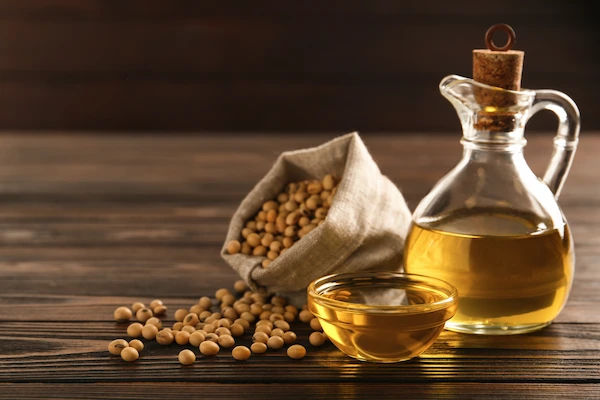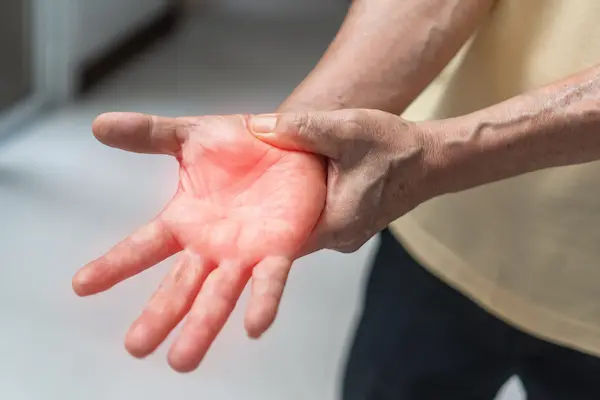Understanding Body Odour and Sweating
Know about the body odour and sweating, what causes it, and how it affects your health. Learn about how to manage body odour and sweating.

Written by Dr. J T Hema Pratima
Reviewed by Dr. Shaik Abdul Kalam MD (Physician)
Last updated on 13th Jan, 2026

Introduction
Body odour and sweating are natural bodily functions, but they can sometimes become a source of embarrassment or discomfort. While sweating is essential for regulating body temperature, body odour can sometimes indicate underlying health or hygiene issues. In this article, we’ll explore what causes body odour and sweating, how they affect your health, and simple ways to manage them effectively.
Consult Top Specialists for Personalised Tips
What Causes Sweating?
Sweating is your body’s way of cooling down. When your body temperature rises—due to heat, exercise, stress, or illness—your sweat glands produce moisture (sweat) that evaporates from your skin, helping you stay cool.
There are two main types of sweat glands:
1. Eccrine glands – Found all over the body, they produce a clear, odourless sweat mainly made of water and salt.
2. Apocrine glands – Located in areas like the armpits and groin, these glands produce a thicker sweat that interacts with bacteria on the skin, leading to body odour.
What Causes Body Odour?
Body odour happens when sweat mixes with bacteria on your skin. While sweat itself is usually odourless, bacteria break it down, producing an unpleasant smell.
Factors that influence body odour include:
Poor hygiene – Not washing regularly allows bacteria to thrive.
Diet – Foods like garlic, onions, and spicy dishes can affect body odour.
Hormonal changes – Puberty, menopause, and stress can increase sweating and odour.
Medical conditions – Diabetes, liver disease, or infections can sometimes cause unusual body odour.
Clothing choices – Tight or synthetic fabrics can trap sweat and worsen odour.
How Does It Affect Your Health?
Sweating is normal and healthy, but excessive sweating (hyperhidrosis) or persistent body odour can sometimes indicate an underlying issue:
Hyperhidrosis – A condition where the body sweats excessively, even without heat or exercise. It can affect confidence and daily life.
Bromhidrosis – A strong, persistent body odour that doesn’t improve with hygiene, possibly due to bacterial overgrowth or metabolic issues.
Skin infections – Excess moisture can lead to fungal or bacterial infections like athlete’s foot or rashes.
If you notice sudden changes in sweating or odour, it’s best to consult a doctor to rule out medical conditions.
Tips to Manage Sweating and Body Odour
1. Maintain Good Hygiene
Shower daily with antibacterial soap to reduce bacteria.
Pay extra attention to areas like armpits, feet, and groin.
Dry yourself thoroughly after bathing to prevent bacterial growth.
2. Use the Right Products
Apply antiperspirants (not just deodorants) to reduce sweating.
Choose fragrance-free or hypoallergenic products if you have sensitive skin.
Use foot powders or antifungal sprays if foot odour is a problem.
3. Wear Breathable Fabrics
Opt for natural fabrics like cotton, linen, or moisture-wicking materials.
Change clothes daily, especially socks and undergarments.
4. Watch Your Diet
Reduce intake of odour-causing foods like onions, garlic, and spicy dishes.
Drink plenty of water to flush out toxins and dilute sweat.
Eat more fruits, vegetables, and whole grains to promote better digestion.
5. Manage Stress
Stress can trigger excessive sweating. Practice relaxation techniques like deep breathing, yoga, or meditation.
6. Seek Medical Help if Needed
If over-the-counter products don’t help, consult a doctor.
Treatments like prescription antiperspirants, Botox injections, or even surgery may be options for severe cases.
When to See a Doctor?
While sweating and body odour are usually harmless, consult a healthcare professional if you experience:
Sudden, excessive sweating (especially at night).
Unusual or foul-smelling odour that doesn’t improve with hygiene.
Sweating accompanied by weight loss, fever, or chest pain.
Final Thoughts
Body odour and sweating are natural, but with the right care, they can be managed effectively. Simple lifestyle changes, good hygiene, and the right products can make a big difference. If you’re struggling with persistent issues, don’t hesitate to seek medical advice—your comfort and confidence matter!
Consult Top Specialists
Consult Top Specialists for Personalised Tips

Dr. Ashita Kuruvilla
General Physician/ Internal Medicine Specialist
7 Years • MBBS
East Midnapore
VIVEKANANDA SEBA SADAN, East Midnapore

Dr. Vivek D
General Physician
4 Years • MBBS
Bengaluru
PRESTIGE SHANTHINIKETAN - SOCIETY CLINIC, Bengaluru

Dr Syed Mateen Pasha
General Physician
2 Years • MBBS
Bengaluru
PRESTIGE SHANTHINIKETAN - SOCIETY CLINIC, Bengaluru

Dr Aakash Andgi
General Physician/ Internal Medicine Specialist
9 Years • MBBS MD
Bengaluru
Apollo Clinic, JP nagar, Bengaluru

Dr. Anand Ravi
General Physician
2 Years • MBBS
Bengaluru
PRESTIGE SHANTHINIKETAN - SOCIETY CLINIC, Bengaluru
Consult Top Specialists

Dr. Ashita Kuruvilla
General Physician/ Internal Medicine Specialist
7 Years • MBBS
East Midnapore
VIVEKANANDA SEBA SADAN, East Midnapore

Dr. Vivek D
General Physician
4 Years • MBBS
Bengaluru
PRESTIGE SHANTHINIKETAN - SOCIETY CLINIC, Bengaluru

Dr Syed Mateen Pasha
General Physician
2 Years • MBBS
Bengaluru
PRESTIGE SHANTHINIKETAN - SOCIETY CLINIC, Bengaluru

Dr Aakash Andgi
General Physician/ Internal Medicine Specialist
9 Years • MBBS MD
Bengaluru
Apollo Clinic, JP nagar, Bengaluru

Dr. Anand Ravi
General Physician
2 Years • MBBS
Bengaluru
PRESTIGE SHANTHINIKETAN - SOCIETY CLINIC, Bengaluru




